How to keep babies warm in cold weather and other winter tips
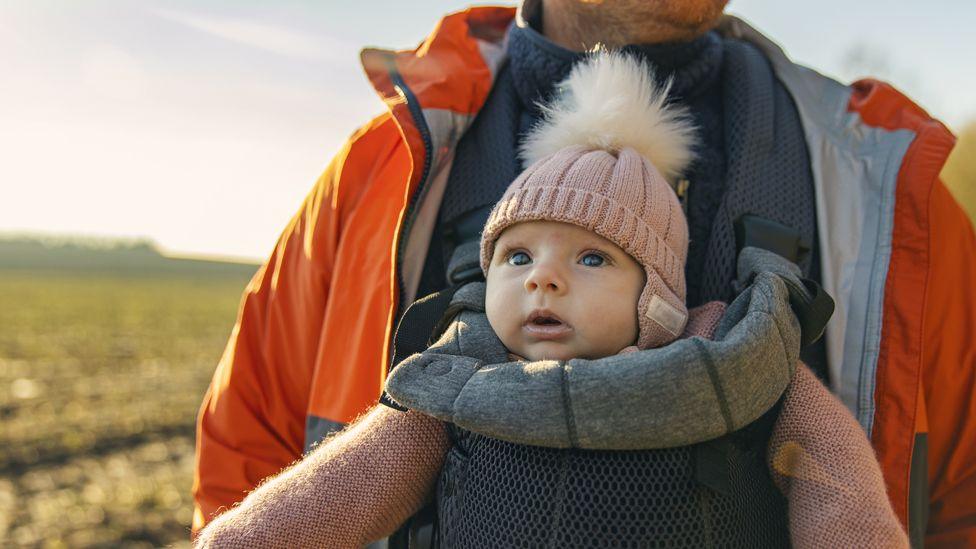
Baby outside in cold weather
- Published
Weather warnings for snow and ice have been issued across much of the UK.
Here are some tips for coping with low temperatures.
How can I keep my baby warm?
Babies and young children under five are more at risk in cold weather.
While outside, the NHS advises that babies and children should wear several layers of clothes to keep warm, external, including a hat and mittens to stop heat loss.
In the car, for safety reasons, you should keep thick jumpers and coats to a minimum, so there is not too much padding between your child and the car seat straps.
If necessary, you can lay a blanket on top of your child once they are safely strapped in.
Remove any hats, gloves and extra layers when you come back inside.
NHS guidance says babies do not need hot rooms at night - a room temperature of between 16-20C (61-68F) is ideal. Overheating is one of the potential causes of sudden infant death syndrome (SIDS), external.
A sleepsuit and either a sleeping bag or a sheet and/or blanket should be fine.
If you're using a sleeping bag and feel like your baby is cold, you should add an extra layer of clothing - but not extra blankets.
If you are using sheets and/or blankets rather than a sleeping bag, you should use lightweight cellular blankets. Avoid thick, fleecy or padded blankets.
Heating tips to keep your home warm when budgets are squeezed
- Published19 November
What does an unheated room do to your body?
- Published19 November 2022
How do cold weather health alerts work?
- Published18 November
How can I avoid winter infections?
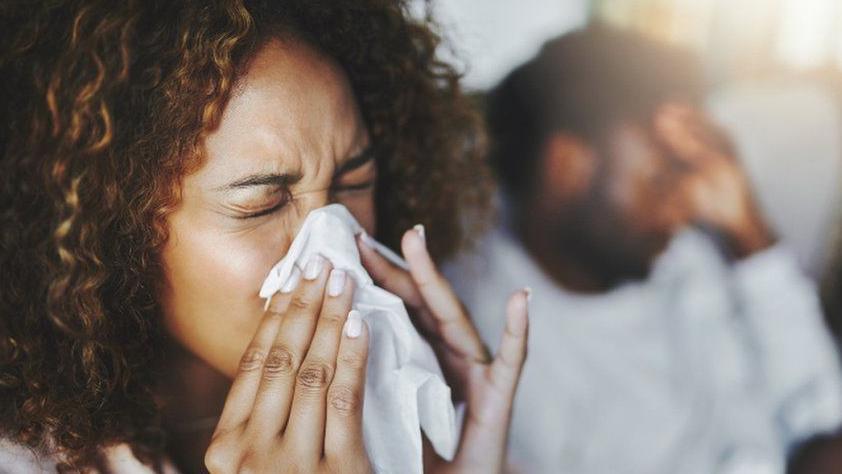
Opening windows where possible and practising good hygiene can help stop the spread of illnesses
Cases of flu, external and norovirus, external - the winter vomiting bug - typically rise at this time of year, and Covid, external is still around too.
When it is cold outside, people tend to spend more time indoors, where it can be easier to catch an infection.
For example, coughs and sneezes in an enclosed space with little or no ventilation (windows closed, doors shut) can quickly spread illnesses from person to person.
Opening windows where possible and practising good hygiene - using and then binning a tissue for coughs and sneezes and washing your hands - can help prevent this.
Those who are eligible for the Covid winter booster jab can get it until 31 January 2026, external. Some groups can also get a free flu vaccine, external.
Anyone who does not qualify for an NHS vaccine can pay to have either or both jabs privately from a local pharmacy.
How can I keep my pet safe and warm?
Like humans, animals can be at risk of hypothermia if they become too cold.
Veterinary charity PDSA, external advises giving dogs and cats extra blankets for their beds over the winter months. Raised beds can keep older dogs away from draughts, while cats may like high-up dens.
The charity also recommends extra playtime for pets to make sure they keep active if they are spending less time outside. Indoor toys can help.
Consider keeping cats inside overnight and provide an indoor litter tray.
A sudden drop in temperature can also have a big impact on outside pets, such as rabbits and guinea pigs. They should be given extra bedding for warmth and, if possible, moved to a more sheltered space or even brought inside.
But you should make sure they have enough indoor space to exercise safely.
Can I walk my dog in cold weather?
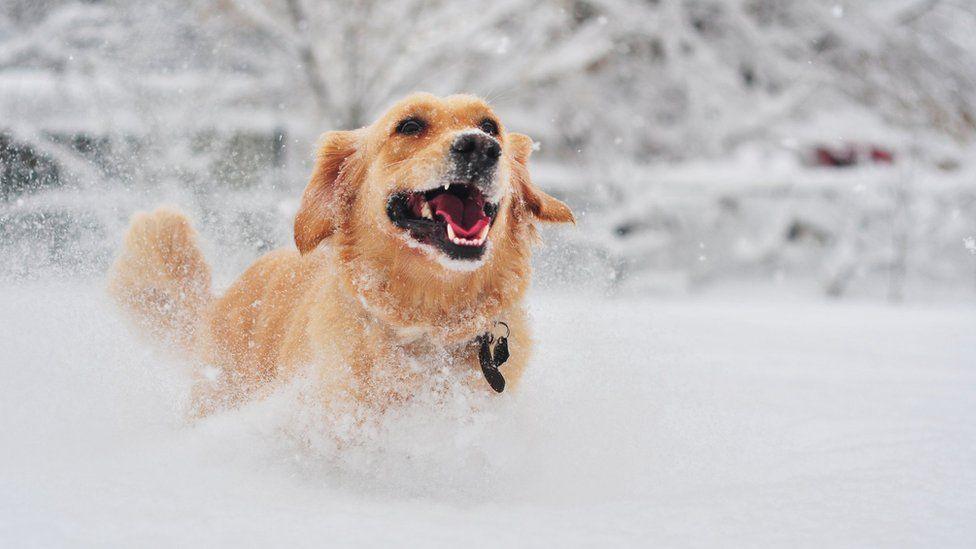
Check your pet's paws if they have been in snow and ice- says the PDSA
Dogs still need walks during cold weather. Usually, their fur will keep them warm.
But the RSPCA advises buying a winter coat or jumper, external for sick or elderly dogs, or those with thinner fur.
Walk your dog during the day if you can, or consider using LED collars or hi-vis leads if you have to go out in the dark.
Be cautious when letting dogs off the lead in the snow, and supervise them closely as hazards may be hidden. Frozen water may not bear their weight.
If you can, take shorter, more frequent walks rather than one long daily hike.
If your dog gets wet, make sure you dry them off with a towel as soon as you get home and check their paws for salt, grit, dirt or snow.
How can I dry clothes more cheaply?
Drying clothes on radiators is a common practice in the winter.
But it can mean turning on heating in parts of the home you are not using. It may also risk making your home damp, which can cause mould.
One option is to use a dehumidifier, which takes water out of the air. Some have laundry settings and can be run for several hours next to wet clothes on a drying rack.
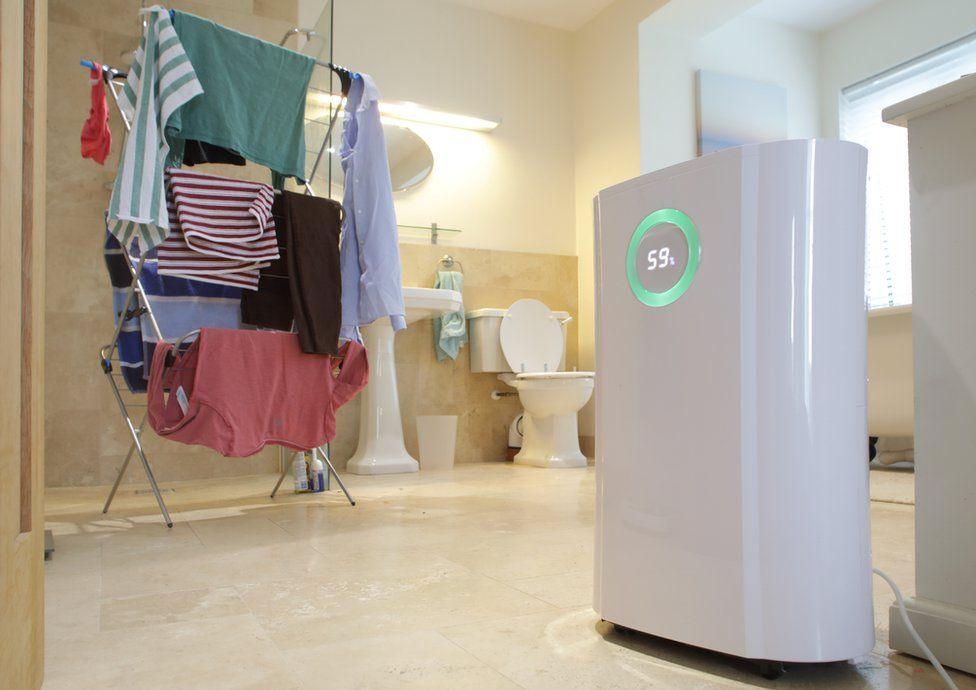
Drying clothes on radiators runs the risk of making rooms in your home damp- a dehumidifier may be the way to go
The financial journalist Martin Lewis has previously pointed out on his BBC podcast that running a dehumidifier is generally "far, far cheaper" than putting on the heating in a room.
What's the best way to de-ice your car?
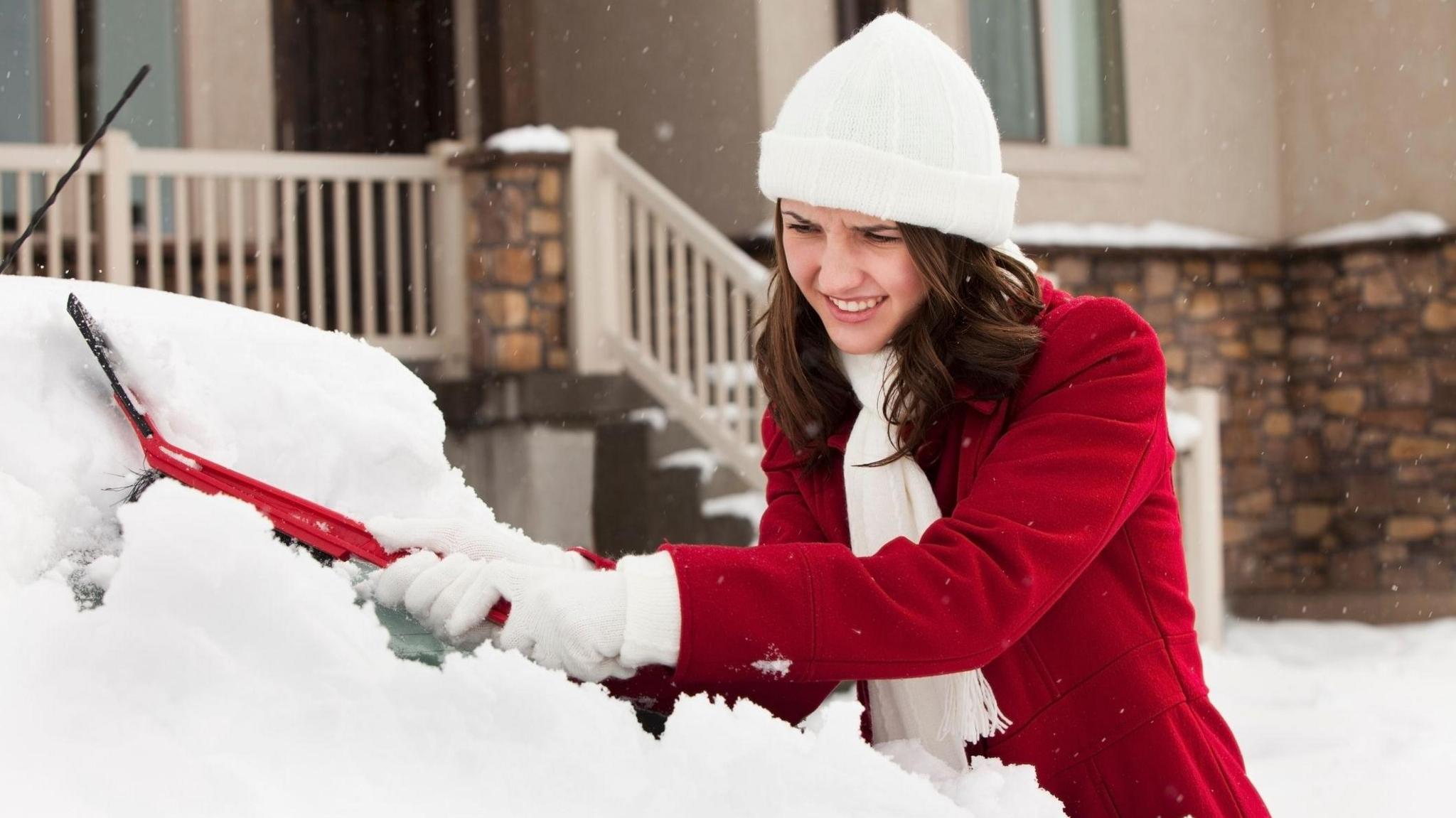
Many drivers waking up to freezing temperatures have to de-ice their cars.
But motorists are warned not to use boiling water from a kettle - hot water can crack the glass and the water will only freeze again on the screen or on the ground.
Instead, the AA recommends turning on the engine - ensuring the wipers are off to avoid damage - and directing warm air to the windscreen.
You should also turn on your rear windscreen heater, and use air-con if you have it to ensure your windows don't fog up.
The next step is to clear any snow with a soft brush, before using a scraper and liquid de-icer.
How can you use plug-in heaters and electric blankets safely?
Portable heaters can be an alternative to switching on your central heating, but they can pose a serious fire hazard if not used carefully.
Firefighters and safety managers from the Electrical Safety First charity say you should place your heater on a flat surface to ensure it will not fall over.
It should be at least 3ft (1m) away from anything flammable. You should not let curtains, clothes, blankets, duvets or armchairs lean against it.
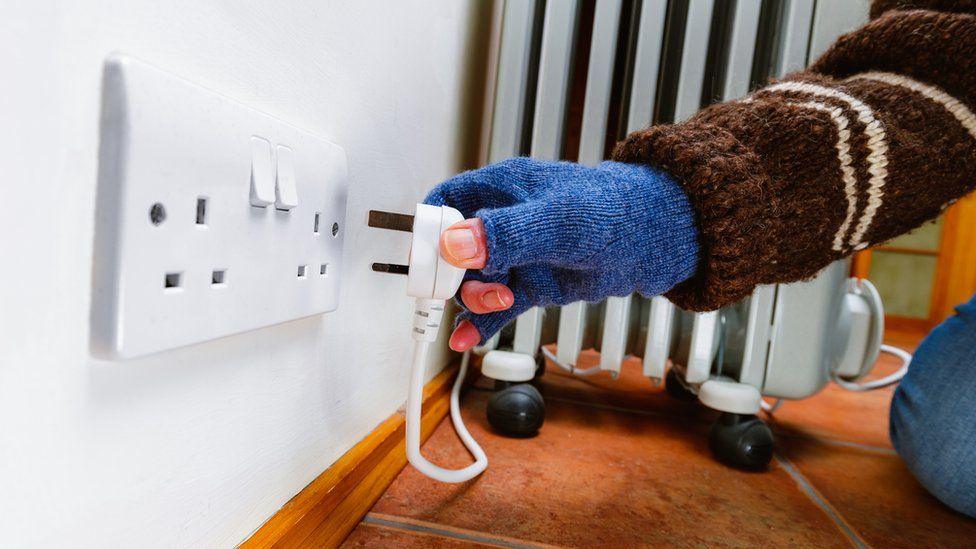
You should not use your heater to dry your washing, or leave it unattended for long periods of time, or overnight.
Experts also warn against plugging heaters into extension leads, as this could cause a fire.
Leaving electric blankets or heated throws on for too long can also be dangerous, so use the timer function.
You should not use any kind of electric blanket at all if any of the heating wires are visible, there is damage to the power cord or control unit, or it gives off a smell when switched on.
Using gas heaters also carries the risk of carbon monoxide poisoning, so you should ensure you have a working carbon monoxide alarm in the same room.